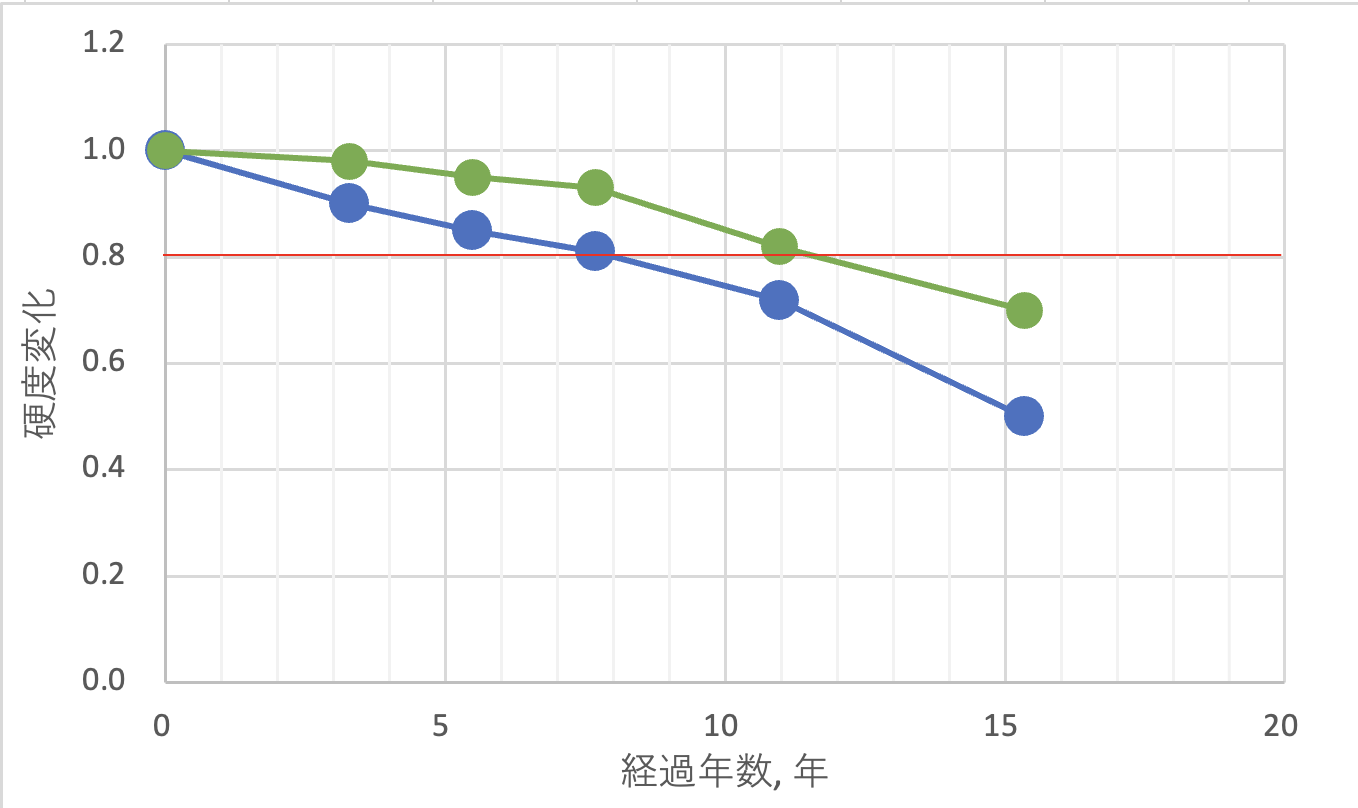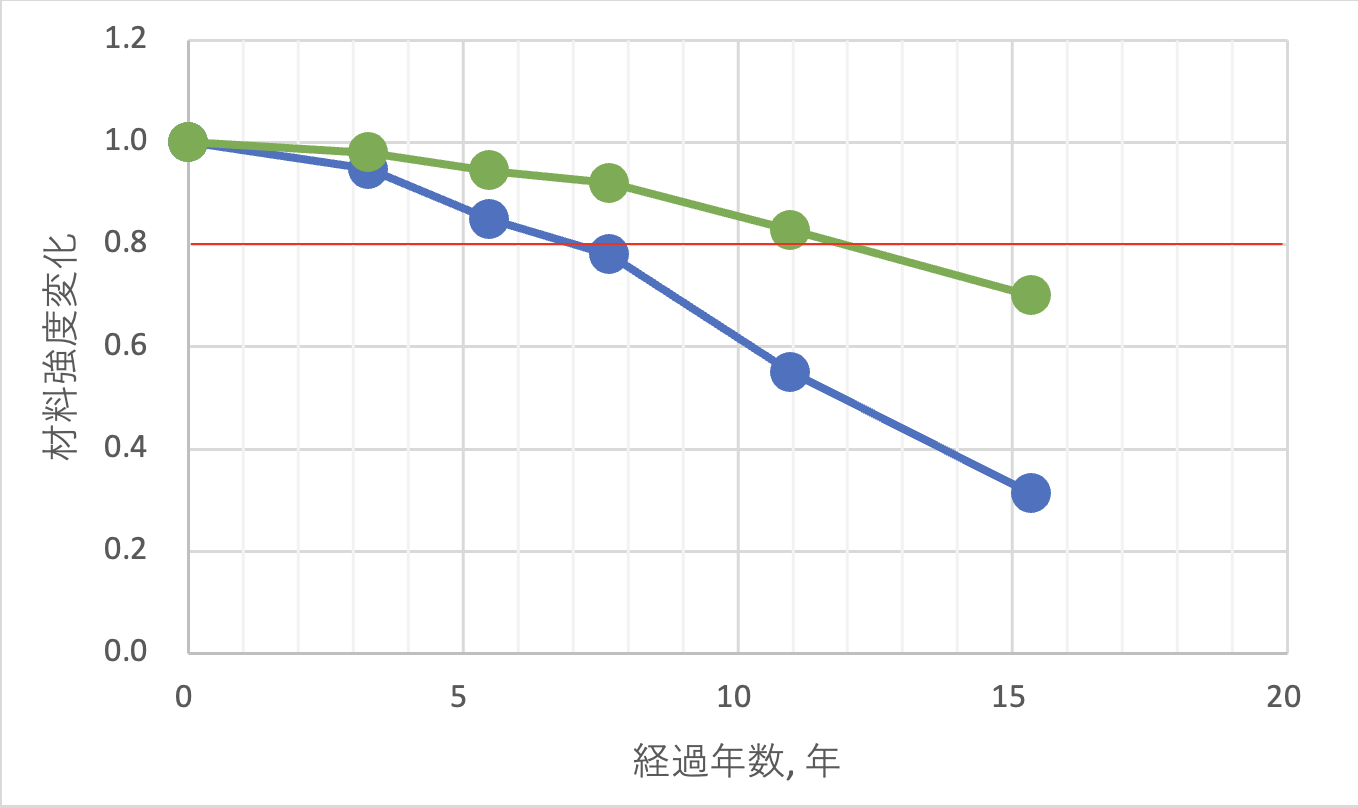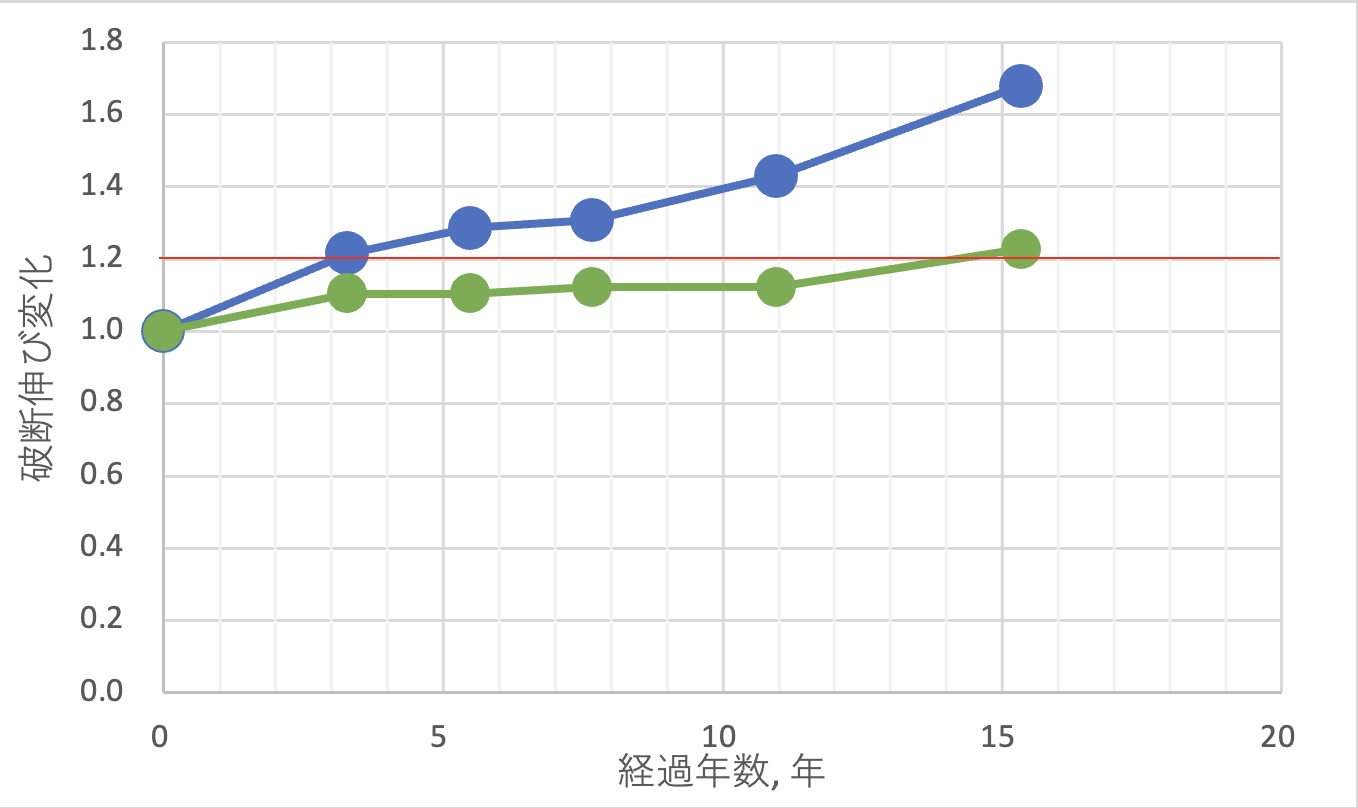
| Requirement characteristics | Characteristic Value | Applicable Standards | Research content and measurement items | |
|---|---|---|---|---|
| Vibration characteristics | Seismic Performance (Actual Machine Test) | In-house standard | Investigate the seismic performance of the structure by giving it actual shaking using our company's seismic car. | |
| Vibration transmission rate, hysteresis characteristic value, natural frequency | In-house standard | Investigate the behavior of the pad under various vibration conditions by characterizing its vibration properties. | ||
| Temperature characteristic | Storage Modulus (E’), Loss modulus (E‘’), Loss Tangent (tanδ) | In-house standard | Investigate the usable temperature range using a dynamic mechanical analysis (DMA) instrument. | |
| Chemical resistance | Assessment of chemical contamination resulting from contact with chemicals | JIS A 1454 | Investigating chemical resistance to pads. | |
| Contamination potential | VOC (Volatile Organic Compound) Testing | JIS A 1901 | Analyze the pad for gas generation. | |
| Contact and migration pollution tests | JIS K 6267 | Investigate the presence of contamination from the pad to the substrate. | ||
| regulated substance content survey | Conforms to each measurement item | To ensure compliance with environmental laws and regulations in each country, we conduct an investigation to identify the presence of any regulated substances. | ||
| Dimensional stability | Dimensional stability | In-house standard | Investigate the influence of temperature and humidity in the installation environment. Measurements will be taken at low temperature and low humidity (10℃ x 10% RH), room temperature and room humidity (25℃ x 55% RH), and high temperature and high humidity (35℃ x 80% RH). The measurement item will be adhesion properties (material hardness). | |
| Antimicrobial and antifungal properties | Antimicrobial Testing Methods and Antimicrobial Effects | JIS Z 2911 | Investigate the condition of suppressing bacterial growth on the surface of the pad. | |
| Fungus resistance | JIS Z 2801 | Investigate the condition of suppressing fungus growth on the surface of the pad. | ||
| Durability | Hydrolytic Degradation Test | Conforms to each measurement item | Investigate the effects of hydrolysis that occur during long-term use. The measurement items are adhesion characteristics and material properties (material hardness). | |
Purpose:To evaluate the resistance to chemicals that come into contact with the pad
Conforming standards:JIS A 1454
Shape of the sample:sheet
Evaluation criteria:23℃
Evaluation method:Observe the surface condition of the sample after dropping
| Standard Pad | Biomass Pad | |
|---|---|---|
| 10%Sodium hydroxide solution | No irregularities found | No irregularities found |
| 10%Sulfuric acid | Observe deformation on the surface | Observe deformation on the surface |
| 10%Hydrochloric acid | Observe deformation on the surface | No irregularities found |
| Lubricating oil | Observe deformation on the surface | Observe deformation on the surface |
| Toluene | Observe deformation on the surface | Observe deformation on the surface |
| Acetone | Observe deformation on the surface | Observe deformation on the surface |
| Ethanol | Observe deformation on the surface | Observe deformation on the surface |
| 35%Hydrogen peroxide | Observe deformation on the surface | No irregularities found |
Purpose:Investigate the presence or absence of gas generated from the pad.
Conforming standards:─
Shape of the sample:Striped sample
Evaluation criteria:23℃×24hours
Evaluation method:After airtight storage of the sample, analyze the gas in the bottle by GC-MS.
※ Limit of detection: 0.1mg/kg (using toluene as the reference standard)
| Standard Pad | Biomass Pad | |
|---|---|---|
| Volatile organic compound (VOC) | Undetectable | Undetectable |
Objective:To ensure that the product does not violate any applicable laws, safety standards, or environmental standards during use.
Evaluation method: We confirm that the product complies with applicable laws and regulations by conducting chemical analysis to identify its contents and conducting investigations. Please contact us separately for details of the investigation results and information on legal and regulatory standards.
Purpose:Investigate the condition of suppressing bacterial growth on the surface of the pad.
Conforming standards:JIS Z 2801
Shape of the sample:sheet(1/500 diluted bacterial suspension using ordinary bouillon)
Evaluation criteria:35℃×24hors
Evaluation method:Measuring the number of live bacteria
Purpose:Evaluate the mold resistance (mold growth resistance) of the pad.。
Conforming standards:JIS Z 2911
Shape of the sample:Sheet (Coated with a suspension of 5 types of mixed spores)
Evaluation criteria:29℃×95%RH×4-week culture
Evaluation method:Check the growth status of mold and rate
| Standard Pad | Biomass Pad | |
|---|---|---|
| Antibacterial activity assessment | Antibacterial | Antibacterial |
| Mold resistant | 2 | 2 |
Purpose:To investigate the durability of the product through accelerated aging tests to ensure that it maintains its characteristics throughout its service life.
Conforming standards:JIS K 6253-3, JIS K 6251
Sample shape:Dumbbell No. 3 (Hardness is measured using the chuck part of the dumbbell.)
Evaluation conditions:Store at 80°C ± 90% RH, Remove and measure after 0, 3, 5, 7, 10, and 14 days
Evaluation method:Convert each measurement value to the equivalent time using the Arrhenius equation. Estimate degradation based on the converted time. Use 30°C and 80% RH as the reference temperature and humidity.


